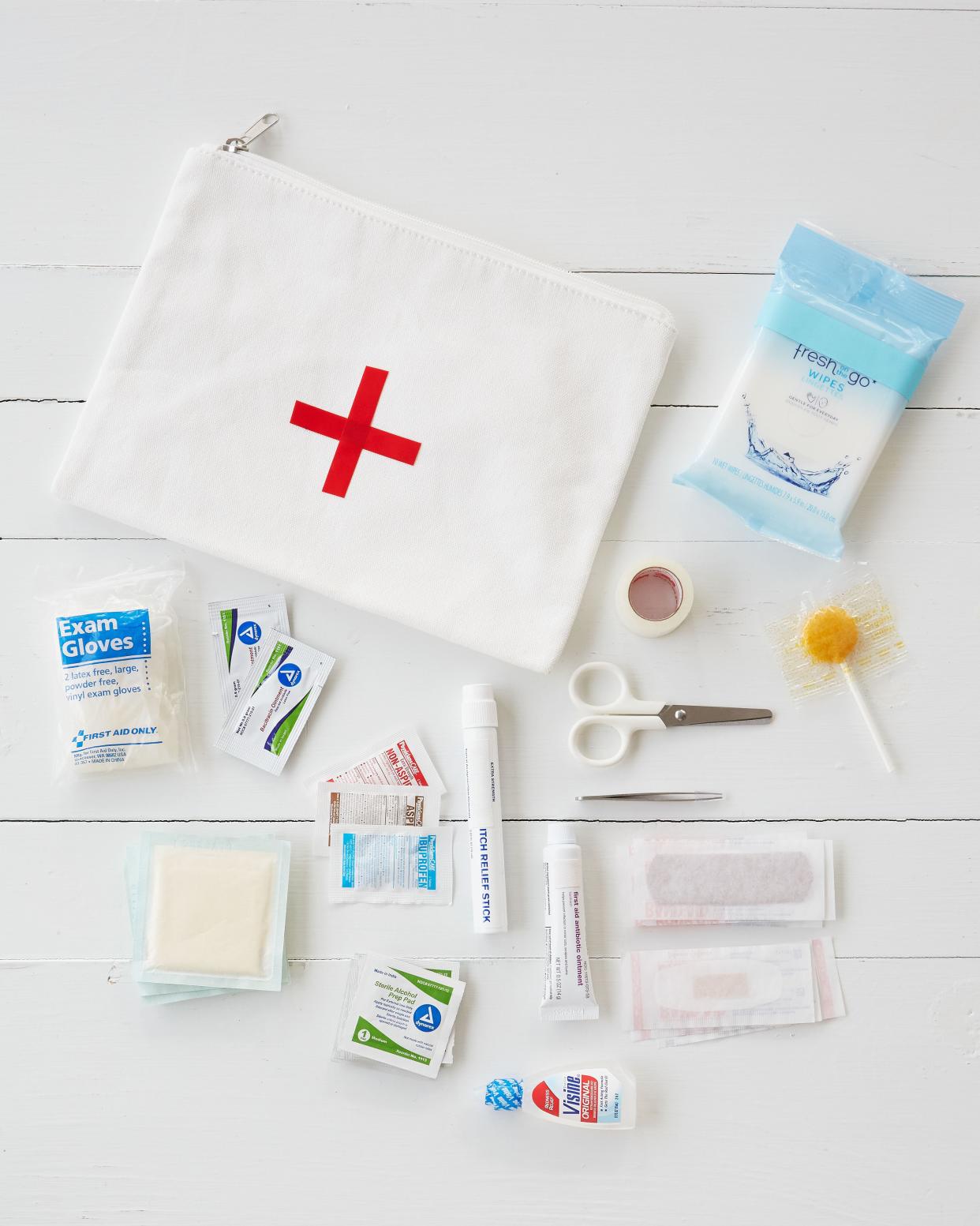12 Essentials to Pack in Your Emergency Kit

Janelle Jones
We all hope that the worst never happens, but there are some things in life that are simply out of our control-like natural disasters. Make sure you're ready for any type of emergency by having the following essentials stored in a safe place to use in your home or to take with you if you're forced to evacuate. All of these items are recommended by the Red Cross.
FIRST-AID KIT
If someone is hurt or injured, this becomes invaluable. When you need first-aid supplies most, you're usually not in the best frame of mind to search for them. A well-stocked kit keeps the items you need easy to find. Bandages, adhesive tape, gauze, and scissors are useful. To clean wounds, keep hydrogen peroxide or isopropyl alcohol (and cotton balls or swabs to apply it) on hand as well as antibiotic ointment (check expiration dates). A first-aid kit is also a good place to store pain relievers.
WATER
Pack four bottles for each family member (including pets), or as many bottles as you can carry comfortably.
NONPERISHABLE FOODS
The Red Cross recommends packing a 3-day supply for evacuation and a 2-week supply for home. Choose foods high in protein, calories, and nutrition. Choose low-salt or salt-free items to avoid thirst. Don't forget powdered baby formula and pet food. Pack everything for easy transport in a durable back pack with multiple pouches and a removable organizer.
DISPOSABLE UTENSILS AND MANUAL CAN OPENER
You may not know when a hot, fresh meal will be available again. In the meantime, be sure to keep a can opener handy for the abovementioned nonperishables.
BATTERY-POWERED ITEMS
You will want to pack three basics: a flashlight (preferably, a Maglite as it has a longer battery life than a conventional flashlight), camping lanterns (no candles or oil lamps), and a radio (to stay informed and listen to updates so you have time to act). You will also want to keep spare batteries on hand.
CELL PHONE WITH CHARGERS
While you may not have immediate service (tornadoes and earthquakes will suddenly disrupt power lines), a working phone is critical to coping with any disaster. Pack a portable charger, preferably one that is solar-powered or functions with a hand crank.
WHISTLE
This can be heard louder than a human voice when trying to alert rescuers.
TOILETRIES AND MEDICATIONS
Use antibacterial items. Pack enough for 10 days because if you have to evacuate far from home, pharmacies may not be able to access your medical records.
CHANGE OF CLOTHING
Pack a set for each family member. You should also choose a blanket that is waterproof, compact, and lightweight.
CASH
Pack enough to cover expenses for a few days. If power goes out, there's no access to banks, ATMs, or credit card swipe devices. Carry items in an easy-to-carry container, such as a duffel bag, backpack, or luggage with wheels.
CONTACTS AND DOCUMENTATION
Keep an emergency contact card in your "GO" bag and a copy on your person at all times. Write in contact information for each household member (work, cell, and school phone numbers). You should also keep copies of personal documents (medication list and pertinent medical information, proof of address, deed/lease to home, passports, birth certificates, insurance policies).
ANTI-STRESS ITEMS
Esepcially if you're the head of a family with small children, help them keep calm: offer favorite magazines, books, crossword puzzles, and snacks.

